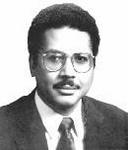
Stephen Vasciannie Freedom of expression is fully supported in international law as a human right. So, for example, Article 19 of the Universal Declaration on Human Rights (1948) specifies that: "Everyone has the right to freedom of opinion and expression; this right includes freedom to hold opinions without interference and to seek, receive and impart information and ideas through any media and regardless of frontiers." This general approach is also reflected in the International Covenant on Civil and Political Rights, the American Convention on Human Rights and the Jamaican Constitution.
There are at least three philosophical arguments that support freedom of expression. First, freedom of expression is a good in itself, a valuable item that all human beings must have. Second, free expression has instrumental value: it is an important part of the competition of ideas, the cut and thrust of debate. And, third, free expression assumes particularly important dimensions in democratic societies. This is so because what the Marxists used to call bourgeois democracy places a high value on the free exchange of political ideas; that is how democratic governance works.
DRAWING THE LINE
In practice, however, even strong supporters of free expression tend to accept that this right needs to be limited in some respects. This is where controversy is likely to arise; some restrictions may be in order, but where do you draw the line, for legal purposes, between lawful and unlawful speech?
This question is always with us, but, for some, it assumes special importance during the election period. In this period, the political parties vie openly for supremacy, to win our hearts and minds, and they sometimes throw out views and accusations expressly designed to hurt the electoral prospects of the other side. In my view, the State should allow this to happen, as part of robust politicalexchange.
Recent proposals
There have, however, been two recent proposals that merit consideration. To begin with, Mr. Claude Robinson, a distinguished commentator and former head of the JBC, has argued that there should be a window period during which persons contesting elections should be required to withdraw from their media-related activity. So, for instance, Delroy Chuck should stop writing his column, Trevor Munroe and Andrew Holness should refrain from hosting the Breakfast Club, while Ronnie Thwaites should leave others to talk independently during the election season.
One can understand the logic of Mr. Robinson's position. Some people appear to have an advantage simply by virtue of the media presence, an advantage that is perceived by some as undemocratic. It may be, however, that we have to accept this as a part of the rough and tumble of democratic politics. If the Robinson proposal is implemented through law, this would, in my view, be contrary to the free-expression rights of the excluded persons.
At the secondary level, the proposal would also face a timing problem: How would one define the election season for these purposes? When did the current campaign season begin? And, in the context where the Prime Minister alone knows the election date for much of the election season, how would we know whether the closed period is reasonable in the circumstances?
The second proposal concerns political polls. The argument is made that political polls can and do influence voting behaviour, and that they are subject to manipulation. So, it is suggested - again for a certain, undefined period - that polls should be restricted in the election season. Again, I am uncomfortable with this because it restricts the freedom of expression of the pollsters, and it restricts my right to receive information.
Pollsters should be free to ply their trade; as with other areas, if they conduct foolish polls the market - you and I - will shun them, and they will go out of business. And, similarly, if the candidates/commentators are biased, we can just turn off the radio, or stop reading the columnist.
Dr. Stephen Vasciannie is professor of international law at the University of the West Indies and works part time in the Attorney General's Chambers.
